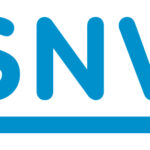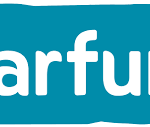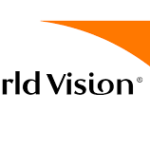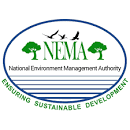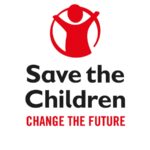Job Description
1. SNV Information.
In May 2018, the Netherlands Ministry SNV is a not-for-profit international development organization that applies practical know-how to make a lasting difference in the lives of people living in poverty. We use our extensive and long-term in-country presence to apply and adapt our top-notch expertise in agriculture, energy, and water to local contexts. SNV has over 1,600 staff in more than 20 countries in Asia, Africa, and Latin America. We are proud to be a not-for-profit organization that uses project financing to implement our mission. This requires us to work efficiently and to invest in operational excellence.
In its new Strategic Plan period (2022-2030), SNV will aim to deepen partnerships with financial institutions, governments, and private sector to expand our impact driven finance portfolio. We will continue to position ourselves as a premium organization and invest in making knowledge flow to and from the frontline and catalyse partnerships that transform the agri-food, energy and water systems which enable sustainable and more equitable lives for all. For more information on SNV’s operations, visit our website: www.snvworld.org.
2. Project Background.
SNV Uganda signed a four-year (2015 -2019) partnership agreement with the Netherlands Embassy in Uganda (EKN) to implement The Inclusive Dairy Enterprise (TIDE) project in Southwestern Uganda. The project enables medium-sized dairy farmers and their organizations to leverage their investments to improve incomes and the nutritional status of their families in seven districts.
Using the drive of the private sector, which has expanded processing capacity, more dairy farms are now able to connect to the dairy value chain. The expanding milk markets both in and outside Uganda have been served by improving the quality and seasonality of dairy production. The focus is on small and medium dairy farms to ensure that women and youth benefit from this transformation.
Building on the results of TIDE Phase 1, TIDE Phase 2 (2020 – 2023) has two approaches, i.e., deepening and upscaling. Under the deepening component, TIDE 2 focuses on the current TIDE project area (7 districts) to increase impact, supporting farmers to reap benefits from the investments made. TIDE-2 also supports interventions further up the value chain to deepen and upscale the work with cooperatives and processors on service delivery and milk quality, domestic market diversification and scaling up of the school milk project.
This is realized by working on four components or outcomes:
1. Productivity: deepening the market in knowledge, inputs and finance through quality products and diversification, with a focus on knowledge and skills transfer and local supply mechanism (CEO model, dairy advisory, PDTFs) and sustainable forage intensification; up-scaling to other commercial farming areas by following the private sector.
2. Milk quality: deepening by supporting milk tracking & tracing for various food safety parameters and critical control point analysis in the entire supply chain; up-scaling (and re-instating) QBMPS (Quality Based Milk Payment System) using a processor-led model
3. Value Chain: deepening dairy value chain linkages through support to cooperatives and inclusive business models; up-scaling by supporting more cooperatives in other districts, lobbying for and supporting the diversification of the domestic markets.
4. Nutrition: deepening the school milk and yoghurt project in SW Uganda by increasing nutritional effects and upscaling the approach outside the project area through e.g., social campaigns and collaboration with processors to enter this market.
In November 2021, EKN amended the existing TIDE -2 contract with top-up grant funding for an Intergrated smallholder dairy development program with a geographical focus on the Rwenzori region, Kigezi region, and the Greater Ankole region in SW Uganda. The grant period is from 2022 to 2024. The 16 districts targeted from the three regions have large numbers that fall within the ISDAP definition of smallholder dairy farmers with less than six acres of land.
The ISDAP component aims to address the issues specifically affecting smallholders. This includes developing the dairy sub-sector within the context of a smallholder farming systems/environment, cross-utilisation of wastes and by-products, access to competitive markets and risk management. This is very much in line with the 2030 SDG commitment to ending extreme poverty, through inclusive interventions.
3. Purpose of the Consultancy
In the eight years of its operations (2015 -2023), SNV through the TIDE project has strategically positioned itself to work with all relevant dairy sector actors and has gained significant experience in working through and with dairy farmers, research organisations, line bodies and ministries under the government of Uganda, input suppliers, training institutions, financial institutions, cooperatives, milk transporters, processors, and consumers. SNV intends to build on these experiences and its positioning to influence the Uganda dairy sector policies and frameworks.
To achieve this goal, SNV is seeking a competent firm or individual to conduct a political socio-economic status review and analysis of Uganda’s current dairy sector status with a special focus on Southwestern and Eastern Uganda. The study is intended to review and analyse issues relating to power relations among the various socio-economic groups, aspects of gender and social inclusion, resource distribution, governance, and the level of participation of the different interest groups.
4. Scope of the assignment.
The geographical scope of the assignment will cover the entire dairy sub-sector in Uganda.
5. Tasks and Deliverables
The following tasks are to be executed as part of the overall assignment:
Provide a detailed analysis of the status of the dairy sub-sector in Uganda.
Conduct a political socio-economic analysis of the diary sub-sector in Uganda.
Under this task, consider the following among others; Political settlement (powers steering the dairy sub-sector), the institutional environment for dairy development, dissection of the policy and institutional framework at play, an analysis of different interest groups and their power of influence.
An overview of the level of participation or non-participation of the different interest groups and social classes, governance structure at play at the different levels and related aspects of gender and social inclusion,
This will result in the following deliverables:
Report: a final report, describing the understanding of the status and political socio-economy of the Ugandan dairy sub-sector and providing justifications for feasible interventions that would benefit future programming of dairy projects in Uganda.
The report should highlight the key policy issues affecting the dairy sub-sector in Uganda.
Presentation: a presentation, capturing the key issues from the report, for a broad dairy sector audience
6. Duration of the exercise
The consultancy period shall in principle not exceed 30 days distributed across November – 12th December 2023. Bids should be received by the COB 8/11/23.
It is proposed that the data collection and documentation will take the following (additional) timelines:
Submission draft report: 31 November 2023.
Presentation in the first week of December 2023.
Submission final report: 12th December 2023.
7. Submission and Payments
The consultants are requested to submit their proposal for the implementation of this assignment, based on the following considerations:
The fee will be all-inclusive, including all applicable taxes, allowances, and accommodation in the study regions (if required). For administrative records, the firm or consultant will submit a plan of activities to the Project Administrator.
Payment will be in two instalments, i.e., 50% upon signing of the contract and 50% upon approval of the final report.
The submission should explain how the consultants will go about the assignment, the applicable fees, a detailed CV of the consultant(s) and a brief explanation as to why the consultant(s) is well-placed to carry out the assignment.
All payments shall be based on an approved report and invoice.
8. Position
The consultant will work directly with the project unit heads and report to the project manager.
Qualifications
A competent firm or individual


